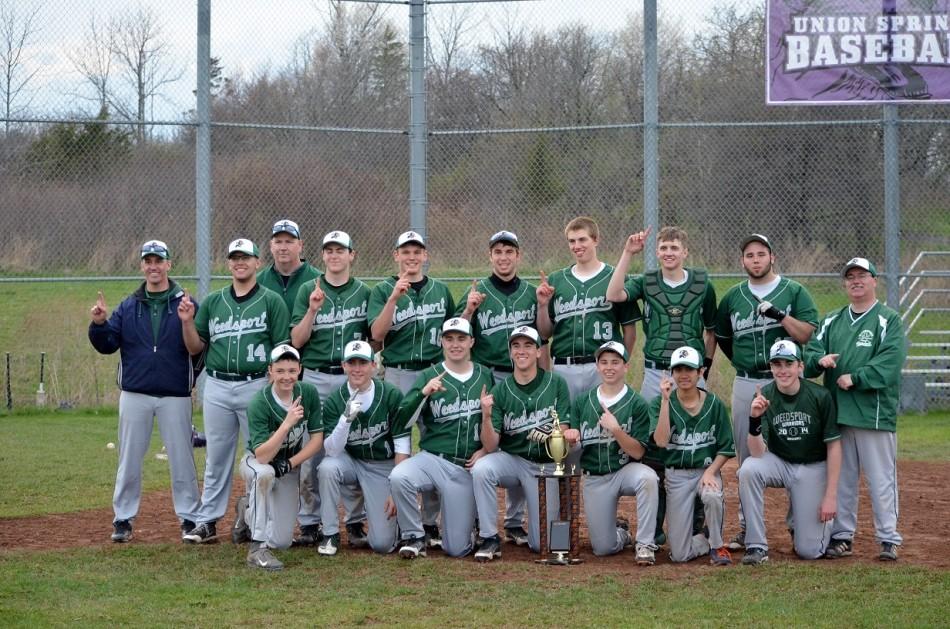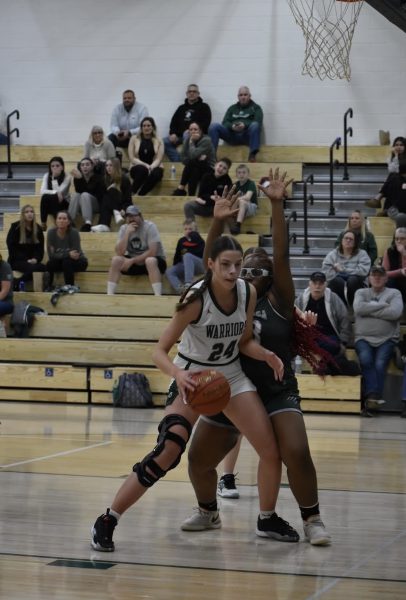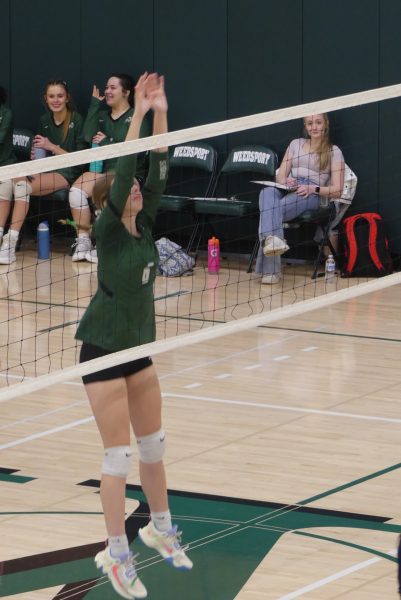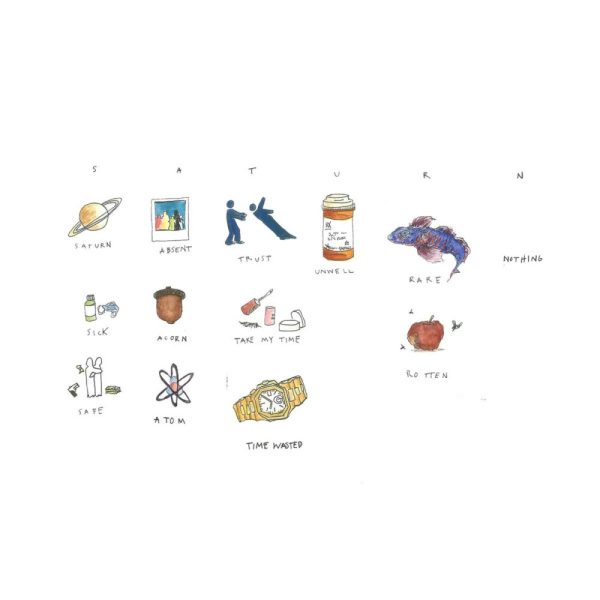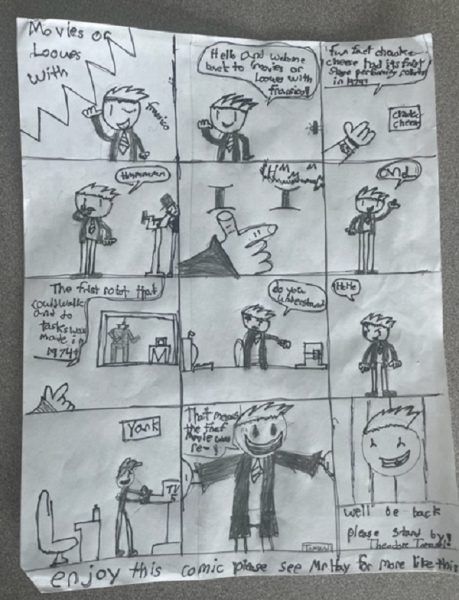WHS Baseball Volunteer Coach Discusses His View of the Season
Editor’s Note: This story is a follow-up to an earlier article that discussed the off-the-field controversy, and on-the-field success, of the WHS Varsity Baseball Team this season. Volunteer Coach Brian Christopher felt it was important to share his perspective on the incidents that were discussed in the earlier article, so he answered some questions from The Johnny Green Staff. The questions and answers follow below:
Johnny Green: Could you please provide your perspective on the scoring change that started the controversy?
Christopher: Assuming you mean the change that occurred the day we had a player quit the team, here’s my perspective: Shaun Ferguson hit a hard ground ball toward 3rd base. The 3rd baseman for the other team reacted to the ball, but not quickly enough, and the ball passed either between his legs or just to his right. I was unsure whether it had ticked off the player’s glove or not. I initially scored it an error but, as was my custom when I wasn’t sure, I asked Coach Ferguson for his input. He was right next to the play because he was coaching 3rd base at the time, so he had the best view of that particular play. When he came back to the dugout, I asked him what he thought. He said he thought it was a hit. I asked whether the ball had ticked off the player’s glove, and Coach Ferguson said no, that it had gone clean under his glove. I said something like (paraphrasing) ‘It’s your book Coach, why wouldn’t that be an Error?’ He then explained to me that Errors are scored based on whether or not the scorekeeper believes that the play would be a “routine play”, with “routine” being the operative word. The scorekeeper has to take into account how hard the ball is hit, whether it’s reasonably within the player’s reach, and whether or not a player at the Varsity level should be reasonably expected to complete the play. This was a learning experience for me since, prior to this year, I had never kept book at the Varsity level. Coach Ferguson went on to explain that the same judgements are made at every level of baseball. He gave an example that a Major League player (he used Jeter) might hit a very hard ground ball toward 3rd, and the player might miss it or have it tick off his glove, but it would still be scored as a hit because it is not a “routine play”, simply because of the speed the ball is traveling and the reaction time available to the player. *It’s not relevant to the story, but it’s interesting to note that this exact scenario happened during a Yankees game within a day or two of this incident. Jeter hit a sharp shot down 3rd base that glanced off the 3rd baseman’s glove and into left field. It was scored a hit by the official scorekeeper for the Yankees.* Unfortunately, neither the player, nor his parents, nor any of the other players or parents who became embroiled in this controversy, nor the Board of Education, nor the Johnny Green itself, ever approached me to ask what my experience was in keeping score prior to this, or for my perspective on the event in question. I was learning and Coach Ferguson was instructing, and in the process people unfairly leapt to the wrong conclusions. The Athletic Director asked for my perspective during the course of his investigation, and I told all this to him. I believe he then related it to the Board of Education as I had related it to him. However, by then people were up in arms, social media and parking lot conversations were ablaze with accusations and insults directed toward Coach Ferguson, and reasonable explanations were never considered. I don’t know the exact reasons why this became the controversy that it’s grown into. However, my opinion is that one player, or several of the players, overheard only part of the conversation between Coach Ferguson and myself, and then leapt to the incorrect and unfair conclusion that because it was the Coach’s son who had hit the ball, that Coach Ferguson was “cheating” on his son’s behalf. I do not believe this is true, and would have said so to anyone who had bothered to ask. I have seen and reviewed every page of the scorebook from this entire season, and I have found absolutely no evidence of cheating, lying, or malicious or retaliatory actions by Coach Ferguson. In my opinion, based on the available evidence and my own direct knowledge, the things that have been said about Coach Ferguson and the actions that have been taken to sanction him are shamefully unfair and unjust, at best. Unfortunately, I haven’t had the opportunity to say this before now without risking further tension and strife among the team.
Johnny Green: Are scoring changes something that happens on a regular basis, and was this instance any different than other changes?
Christopher: I guess that depends on the experience of the scorer. In my case, I was new to keeping all the different stats associated with Varsity level score keeping. In the early part of the year, before all the controversy, it was my custom to discuss close plays with Coach Ferguson and/or Coach Sears. Sometimes those discussions led to a confirmation that I had correctly scored the play, while other times they led to a learning experience for me and a change in the book. This was never malicious, unfair, or directed toward any given player. In fact, several of the players on the team this year were the beneficiaries of changes, although they may not be aware of it. The coaches do not routinely discuss how a play is scored with the players, although if they come up and ask me, I usually tell them. It’s not posted on a scoreboard in most of the venues we play at. Those who are familiar with the game know that even at the Major League level, the official scorekeepers sometimes change their first score after they’ve had the opportunity to review the play. Sometimes those changes don’t even occur in the same inning. You will hear the announcer say things like “After reviewing the play, the Error last inning has been changed to an hit”. The important thing is that we get it as correct as possible, not necessarily that we get it right the very first instant that it happens. What bothers me more about this particular instance is that there was a rush to judgement about Coach Ferguson’s motives in making the correction, and then there was a lack of willingness to communicate with Coach Ferguson or myself about why the change was necessary or correct. This entire controversy, hard feelings between players/parents/coaches, and bad press for our community, could have been avoided with a simple request for an explanation and a willingness not to rush to judgement about the Coach’s character, integrity, or motivations.
Johnny Green: What impact did the off-the-field issues have on the team’s performance this year?
Christopher: Who can say for certain? We won 8 of our last 10 games, even while all this was going on. Would we have been able to advance further without the controversy? I don’t think anyone can say. Here’s what I do know… Coach Ferguson and the rest of us worked hard to stay positive and continue to help the team members grow as student athletes in the sport. We agreed that during the season we would not engage in the drama, because we didn’t want to further erode the team’s cohesiveness or ability to advance into the Sectional playoffs. Sectional playoffs were our stated goal at the beginning of the season, and Coach Ferguson kept us all focused on that goal despite everything going on. Of course, there was tension. Most or all of the players and coaches knew at least some of what was going on off the field. Despite that, Coach Ferguson insisted we all stay positive, together, and focused on the team’s shared goals. Unfortunately, behind the scenes the Board of Education was being petitioned to sanction the Coach, even while the regular season was ending and playoffs were beginning. Nevertheless, Weedsport made it to the Sectional playoffs for the first time in 6 years, and advanced to the semi-final round for the first time in more than a decade. As one of our Seniors pointed out at the end of the last game, that’s quite an improvement for a team that had a 2-16 record two years ago (before Coach Ferguson took over). The team’s success this year is a testament to the hard work and dedication to the sport demonstrated by the student athletes but, as I told the team on the bus after our last game, it’s also a testament to Coach Ferguson’s commitment to the team and his refusal to sling mud in return or quit on them, even after all the painful statements and actions that were made against him.
Johnny Green: As an educator, what lessons do you hope the student athletes on the team can take away from this baseball season?
Christopher: 1. Advocate for yourself or others when necessary, and always with the person(s) directly involved rather than on social media, in the parking lot, or in the school hallways. 2. Communicate honestly with other people when you have concerns, and then listen to their replies and be willing to accept reasonable explanations when they’re offered. 3. Do not assume the worst of people unless or until they give you reason to do so. 4. Base your opinions on evidence, not assumptions or partially overheard conversations. 5. Be leaders among your peers on and off the field, remembering always that leaders have a responsibility to make certain that the direction they’re leading is toward justice and the greater good for all.
Johnny Green: What are your plans for your involvement in the team next year?
Christopher: As a volunteer, I have no expectation about my involvement from one year to the next. Despite all that’s occurred, I’ve enjoyed working with the team and I hope that I’ve helped make a positive impact on the student athletes, the team, and the Weedsport community. If I’m asked to volunteer again next year, I will take it as an affirmation of value to the team and consider the offer in the context of what’s best for myself, my family, the team, and the District.
